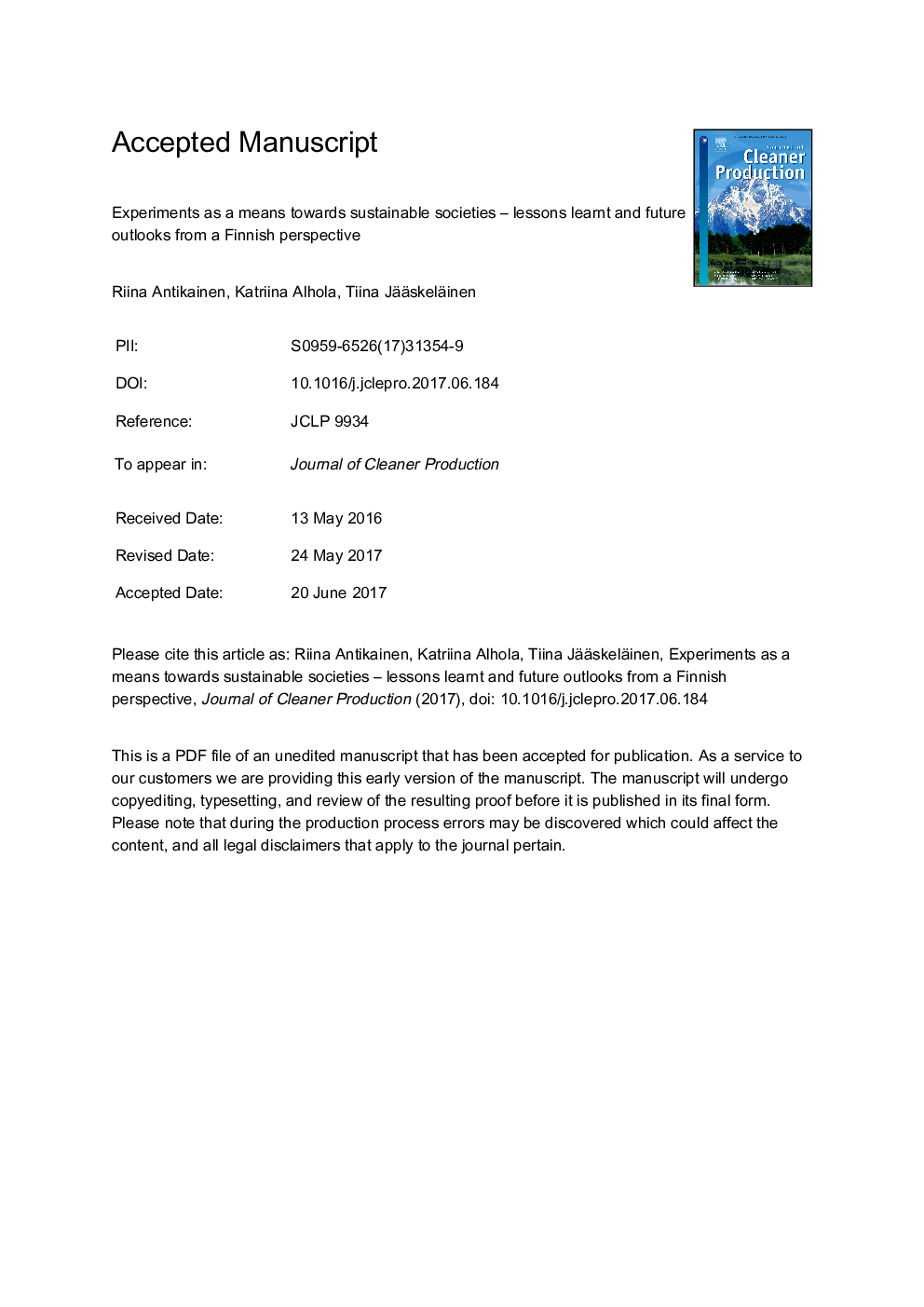| Article ID | Journal | Published Year | Pages | File Type |
|---|---|---|---|---|
| 5479314 | Journal of Cleaner Production | 2017 | 16 Pages |
Abstract
Experimentation has been introduced as a potential means to overcome gaps between top-down led climate change policies and challenges related to the upscaling of grassroots innovations. In Finland, the current government programme emphasises the role of experimentation in sustainability transition and as a source for new growth. We carried out an exploratory study into the conditions that support experimentation and analysed the role of experiments in creating change, and the critical factors that determine the success of the experiments and their possibilities for upscaling. We drew our analyses from a selection of ten experiments aimed at mitigating climate change and improving resource efficiency. Experimentation scholars have identified similar success factors and barriers across different types of experiments, including economic viability, public funding, technological development, impact assessments, public policies and regulation as well as social aspects. Our results are in line with these findings, especially highlighting the significance of the social aspects as a crucial enabling factor. The monitoring of the sustainability performance of both successful and ended or failed experiments and communication about the impact of such experiments are important from a learning point of view. We conclude that the development of governance structures for experimentation requires further attention.
Related Topics
Physical Sciences and Engineering
Energy
Renewable Energy, Sustainability and the Environment
Authors
Riina Antikainen, Katriina Alhola, Tiina Jääskeläinen,
